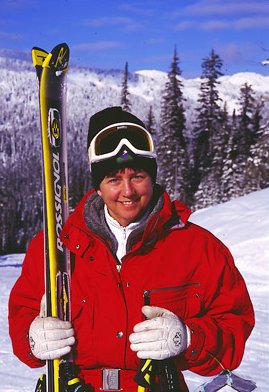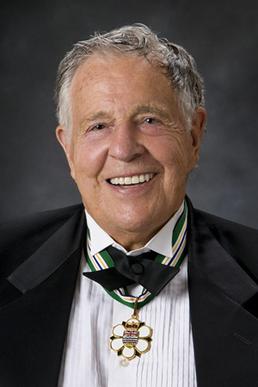Related Research Articles

British Columbia is the westernmost province of Canada. Situated in the Pacific Northwest between the Pacific Ocean and the Rocky Mountains, the province has a diverse geography, with rugged landscapes that include rocky coastlines, sandy beaches, forests, lakes, mountains, inland deserts and grassy plains. British Columbia borders the province of Alberta to the east; the territories of Yukon and Northwest Territories to the north; the U.S. states of Washington, Idaho and Montana to the south, and Alaska to the northwest. With an estimated population of over 5.6 million as of 2024, it is Canada's third-most populous province. The capital of British Columbia is Victoria, while the province's largest city is Vancouver. Vancouver and its suburbs together make up the third-largest metropolitan area in Canada, with the 2021 census recording 2.6 million people in Metro Vancouver. British Columbia is Canada's third-largest province in terms of total area, after Quebec and Ontario.

The coat of arms of British Columbia is the heraldic symbol representing the Canadian province of British Columbia. The arms contain symbols reflecting British Columbia's British heritage along with local symbols. At the upper part of the shield is the Union Jack, representing the United Kingdom. The lower portion of the shield features a golden sun setting into the ocean, representing the province's location on the Pacific.

Nancy Catherine Greene Raine is a former Canadian Senator for British Columbia and an Olympic alpine champion voted as Canada's Female Athlete of the 20th Century. She was born in Ottawa, Ontario, Canada. Greene Raine won the giant slalom in the 1968 Winter Olympics in Grenoble, France.

The Order of British Columbia is a civilian honour for merit in the Canadian province of British Columbia. Instituted in 1989 by Lieutenant Governor David Lam, on the advice of the Cabinet under Premier Bill Vander Zalm, the order is administered by the Governor-in-Council and is intended to honour current or former British Columbia residents for conspicuous achievements in any field, being thus described as the highest honour amongst all others conferred by the British Columbia Crown.

The lieutenant governor of British Columbia is the representative of the monarch in the province of British Columbia, Canada. The office of lieutenant governor is an office of the Crown and serves as a representative of the monarchy in the province, rather than the governor general of Canada. The office was created in 1871 when the Colony of British Columbia joined Confederation. Since then the lieutenant governor has been the representative of the monarchy in British Columbia. Previously, between 1858 and 1863 under colonial administration the title of lieutenant governor of British Columbia was given to Richard Clement Moody as commander of the Royal Engineers, Columbia Detachment. This position coexisted with the office of governor of British Columbia served by James Douglas during that time.

Government House of British Columbia is the official residence of the lieutenant governor of British Columbia in Victoria and is vice-regal residence. It has casually been described as "the Ceremonial Home of all British Columbians." It stands in the provincial capital on a 14.6-hectare (36-acre) estate at 1401 Rockland Avenue; while the equivalent building in many countries has a prominent, central place in the capital, the site of British Columbia's Government House is relatively unobtrusive within Victoria, giving it more the character of a private home.

Thomas Rodney Berger was a Canadian politician and jurist. He was briefly a member of the House of Commons of Canada in the early 1960s, entering provincial politics thereafter. He led the British Columbia New Democratic Party for most of 1969, prior to Dave Barrett. Berger was a justice of the Supreme Court of British Columbia from 1971 to 1983. In 1974, Berger became the royal commissioner of the Mackenzie Valley Pipeline Inquiry, which released its findings in 1977. After retiring from the bench, Berger continued to practise law and served in various public capacities. He was a member of the Order of Canada and the Order of British Columbia.

Major-General George Randolph Pearkes was a Canadian politician and soldier. He was a recipient of the Victoria Cross, the highest award for gallantry in the face of the enemy awarded to British and Imperial forces; and the 20th lieutenant governor of British Columbia.

Sir Matthew Baillie Begbie was a British lawyer, politician, and judge. In 1858, Begbie became the first Chief Justice of the Crown Colony of British Columbia in colonial times and in the first decades after British Columbia joined Confederation as a province of Canada.
The orders, decorations, and medals of Canada comprise a complex system by which Canadians are honoured by the country's sovereign for actions or deeds that benefit their community or the country at large. Modelled on its British predecessor, the structure originated in the 1930s, but began to come to full fruition at the time of Canada's centennial in 1967, with the establishment of the Order of Canada, and has since grown in both size and scope to include dynastic and national orders, state, civil, and military decorations; and various campaign medals. The monarch in right of each Canadian province also issues distinct orders and medals to honour residents for work performed in just their province. The provincial honours, as with some of their national counterparts, grant the use of post-nominal letters and or supporters and other devices to be used on personal coats of arms.
The orders, decorations, and medals of the Canadian provinces, in which each province of Canada has devised a system of orders and other awards to honour residents for actions or deeds that benefit their local community or province, are in turn subsumed within the Canadian honours system. Each province sets its own rules and criteria for eligibility and also for how each award is presented. Most of the awards allow for the recipients to wear their awards in public, and most grant the recipients the use of post-nominal letters after their names. Not all of the awards listed below are part of the Canadian honours system, thus some of them may not be worn or court mounted with awards that are part of the Canadian honours system.

The Vancouver School Board (VSB), officially the Board of Education of School District No. 39 (Vancouver), is a school district based in Vancouver, British Columbia, Canada. A board of nine elected trustees governs this school district that serves the city of Vancouver and the University Endowment Lands.
Phyllis Marie Gregory Ross, was a Canadian economist, and civil servant who was the first female chancellor of the University of British Columbia and in the Commonwealth of Nations. She was also the mother of the 17th Prime Minister of Canada, John Turner.

Wallace Taroo "Wally" Oppal, is a Canadian lawyer, former judge and provincial politician. Between 2005 and 2009, he served as British Columbia's Attorney General and Minister responsible for Multiculturalism, as well as Member of the Legislative Assembly of British Columbia for the riding of Vancouver-Fraserview as part of the BC Liberals.

By the arrangements of the Canadian federation, Canada's monarchy operates in British Columbia as the core of the province's Westminster-style parliamentary democracy. As such, the Crown within British Columbia's jurisdiction is referred to as the Crown in Right of British Columbia, His Majesty in Right of British Columbia, or the King in Right of British Columbia. The Constitution Act, 1867, however, leaves many royal duties in British Columbia specifically assigned to the sovereign's viceroy, the Lieutenant Governor of British Columbia, whose direct participation in governance is limited by the conventional stipulations of constitutional monarchy.

Steven Lewis Point, (Xwelíqwetel) is a Canadian academic administrator, criminal lawyer, and jurist. He is the current chancellor of the University of British Columbia. He served as the 28th Lieutenant Governor of British Columbia from 2007 to 2012. He also served as the chair of the advisory committee on the safety and security of vulnerable women, a committee that provides community-based guidance to the implementation of the recommendations from the Missing Women Commission of Inquiry.
Dave Sukhdip Singh Hayer is a former Indo-Canadian politician for the province of British Columbia. He served as member of the Legislative Assembly (MLA) for Surrey-Tynehead from 2001 to 2013. Hayer is the son of assassinated journalist Tara Singh Hayer.
Dogwood BC is a Canadian non-profit public interest group based in Victoria, British Columbia. The organization works to increase the power of British Columbians over government decision-making. They were instrumental in the fight against Enbridge's Northern Gateway pipeline, introducing a tanker moratorium on BC's north coast and the province's campaign finance reform. The organization currently works to stop Kinder Morgan's Trans Mountain tanker and pipeline expansion in BC, ban U.S. thermal coal exports through BC ports and restore accountability and transparency to the province's democracy by calling for a Corruption Inquiry.

Harold Peter "Herb" Capozzi was an athlete, businessman, professional sports team manager and political figure in British Columbia. He represented Vancouver Centre in the Legislative Assembly of British Columbia from 1966 to 1972 as a Social Credit member. He ran unsuccessfully for the Legislature in the 1963, 1972 and 1975 provincial elections.
References
- 1 2 3 4 5 6 Smilley, Bruce (November 21, 1969). "B.C. Gov't Awards Dogwood Medals". The Vancouver Sun. p. 13.
- 1 2 3 4 5 6 7 8 9 10 11 12 Mackie, John (November 21, 2012). "This Day In History: November 21, 1966". The Vancouver Sun. p. A2. Archived from the original on March 19, 2018. Retrieved November 26, 2012.
- ↑ "Media Images". Royal BC Museum. Archived from the original on November 10, 2012. Retrieved November 10, 2012.
- 1 2 3 4 5 6 "People Make News - High Honour". The Montreal Gazette. Montreal, Quebec. 1968-07-27. p. 5.
- ↑ orderbceditor (2009-01-15). "2004 Recipient: Nancy Greene Raine – Sun Peaks | Order of BC". Orderofbc.gov.bc.ca. Retrieved 2012-11-10.
- 1 2 3 Canadian Press (1971-05-12). "Queen Ends B.C. Tour". The Regina Leader-Post. Regina, Saskatchewan. p. 1.
- ↑ "Canada's Top Athletes - The Lou Marsh Legacy - Honouring Canada's Top Athletes". Loumarsh.ca. 1980-04-12. Retrieved 2012-11-10.